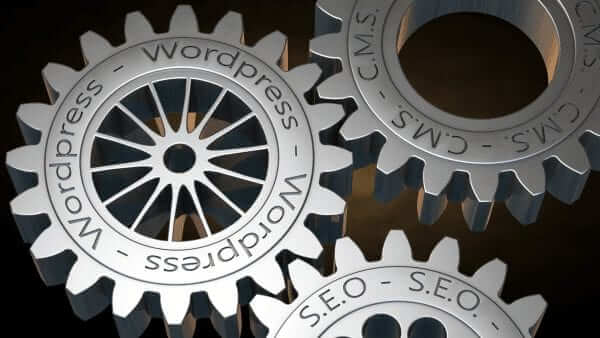So you ask a web developer… “How Much Does A Website Cost?”
You need a new website and you want to know whether you can afford it. It’s a reasonable request. Otherwise how will you know whether you have enough money to make it all happen? Because website designers build websites all the time so they should be able to answer it easily, don’t you think?
Perhaps surprisingly there is not a simple answer to this question, and it’s not because you’ve chosen a dodgy website designer.
Why this is a challenging question to answer
To ask the question “How much does a website cost?” without first providing some more requirements is a bit like asking a builder the same question. A builder will not be able to answer until he has sat down with you to understand key factors like:
- how may rooms will the house have?
- will it be on foundations or a slab?
- how many floors will it be?
- what will the block be like?
- what brand of appliances?
- do you want standard or gold tap fittings?
- what about solar panels?
- and do you want landscaping included?
…the list of questions goes on and on.
So when someone asks me “How Much Will A Website Cost”, without giving me any additional information, I smile and think
[quote]“Well, how long is a piece of string?”[/quote]
It usually means a conversation about what’s involved in building a website, and the things I will need to understand before I can provide a decent quote that is going to deliver what my customer wants.
Of course, it doesn’t mean that there’s no answer to this question. In fact you should be able to get a very detailed answer to your question, but the process of gathering a customers’ requirements takes time to detail the options and inclusions. Just like when you sit down with a builder to discuss what your new home will look like.
Because it’s only then that your builder (or website designer for that matter) will have a clear picture of exactly what you require.
If you don’t document your website requirements then you will have no agreement on when the job is finished, or whether it’s done to the standard you expect.
But what about the fixed-price website promises?
There are people and companies who promise cheap websites for an unbelievably small amount of money. You will often see them advertising in print and on the web. When you see these ads, be wary. While they will deliver you a cheap fixed price website, they don’t promise to deliver what you need. So there’s no guarantee of results, and no guidance on what you actually need. You just get some pages, on a web server connected to the internet.
You’ll nearly always find these offers are quite rigid. There will be very little room to change or modify what they give you without extra cost. The idea is to get you in, build you a site and then move on to the next customer. You may not even get to speak to your designer. It’s a production line “cookie-cutter” approach to something that should really be done by an artisan.
I’ve had customers coming to Asporea Consulting 6-12 months after taking up a cheap website offer.
They discover the hard way that they don’t have what they really want, and they end up starting again. It’s a shame because the money they thought they were saving could have gone a long way towards building the right website for them in the first place.
Beware of people who promise you everything at a low price
Some customers have learned the hard way that if you pay peanuts you’ll get monkeys.
If you have a web designer who is willing to give you all their time and skill for a small price, this should set off alarm bells. They may be inexperienced or not have the skills to really understand your business and give you a site that you need. With this type of inexperience often comes frustration when the customer is not getting the results they want.
Spending more up front pays off
Paying a little more to work with a professional designer gives you more than you expected. The experience pays off in terms of a comprehensive plan, well managed expectations and delivering a quality result with minimal rework. An experienced designer can guide you through the task, taking your hand and working out strategically what is going to work best to maximise your business.
Paying a little bit more and working with a professional designer does pay off in the long run. A web designer’s experience will tell them how they need to plan in order to get the best result by doing the work once. They will be able to discuss all the different aspects of your new website, explaining concepts and detailing what you need.
By taking time to properly brief your web designer before asking “How Much Will A Website Cost?” allows him or her to fully explore what your requirements are so they can give you a fair and reasonable quote for the amount of work required. So, here are 9 questions you should ask before you ask for a quote.
9 Questions To Ask Before “How Much Does A Website Cost?”
1. How many pages does your website need?
Consider existing websites in your industry, what are the important things they have included in their site that should be in yours. Step into your customer’s shoes. If you were their customer, what information is missing that you would like to know? Armed with this information write down your suggested page headings.
2. When people get to your website what do you need them to do?
This requires a sales focus. If your website was the only way you could attract new customers, what does that site need to do to bring the customers to you? In this consider as a minimum a “Contact us” page with a form to collect customer information. Other features may include social media buttons, a newsletter subscription or a shop. Online shops require additional effort to set up your store and load products, unless you have the skills and plan to do this yourself.
3. Do you want to be able to communicate news or write a blog for your visitors?
Do you need the blog integrated into your website? Will you just want a link from your website to your blog? How you answer these questions will have both an impact on the cost as well as which website platform your designer should use.
4. How often will you be updating the website and will you do it yourself?
While this will have an impact on cost if you do not plan to do the updates yourself, most websites these days, including those from Asporea Consulting allow you to log-in and update website content yourself. This is a good thing and you should be pressing your web designer for this option.
5. Have you already purchased your hosting and domain name?
These are both essentials for your new website, and not having these will change the quote. I’m not suggesting you run out and do this, if you haven’t… If a designer needs to establish web hosting for you then this will be an additional charge that is passed on to you. My best advice here is to wait until you’ve chosen your web designer until you buy hosting or a domain name, as they will be able to guide you on the most reliable platforms and best names for your website.
6. Will you be providing the business identity and logo?
Web design is not graphic design. Generally a web designer will work with your existing business collateral to design a website that shares your business’ visual identity. If you don’t have these in place, then you should expect this to come at an additional cost as it will take more time to complete. If you want to get this done yourself, online services like 99Designs and DesignCrowd offer design competitions that will help you get a logo completed.
7. Will you write the website content?
Unless you’re dealing with a larger communication agency, your web designer is not necessarily going to be a copywriter who can create interesting and engaging copy for your website. If you’re wondering what I’m talking about when I say copy, I’m talking about the words that end up on your website.
Your web copy is important for a few reasons, firstly the quality of your copy will have a direct impact on your search engine rankings and secondly, it will determine whether people interact with your business or not.
Your website copy is one of the most vital parts of your website. If you are not confident that you have what it takes to write the copy for your website, then engage an agency like Asporea Consulting who will understand your business first and then reflect it in the copy we create for you.
8. Will you provide the images and photography?
Unless you are supplying your own pictures, website photography is not free and will have an impact on the final cost. The images you see on many websites are stock photography, which means that your web designer must pay for them before they can be legally used on your website. Not doing this risks legal repercussions. But often stock photography is repetitious and bland. A better option than stock photography is engaging a photographer who can work with you and your web designer to create pictures that are complementary to your design.
9. What are 3 examples of sites you like, and 3 sites you hate?
Giving your web designer an idea of the websites that appeal to you will guide the way your designer thinks about your project. Your designer can dig-in to discover why you like or dislike particular features. It creates a rich conversation that can provide more insight into the website you not only want, but need.
Once you are able to answer these questions (or even if you can answer most of them) then it’s time to ask for an appointment with a few web designers. Get to know their work, and work out who you can trust. Like any relationship you need to feel that your designer gets you and your business. As well as being able to deliver you a site you’ll love.
Talk to them about the nine points outlined above to help them understand you and your website requirements. Once you feel that they get you, then start talking about the price. By doing the steps in this order you’ll get confidence in your web designers’ abilities, and they will get to know you and what it’s like to work with you, before they give you a realistic quote for the amount of work required.
And one final note… when you engage your designer consider it like a partnership. A good web designer will want to get the best result for you using the skills and expertise they’ve built up over many years.
Work with your designer to understand why they are recommending the things they do. Trust in your designer because their advice is based on a wealth of experience and best practice.
In the end leveraging and trusting this experience can save you money and grief!




